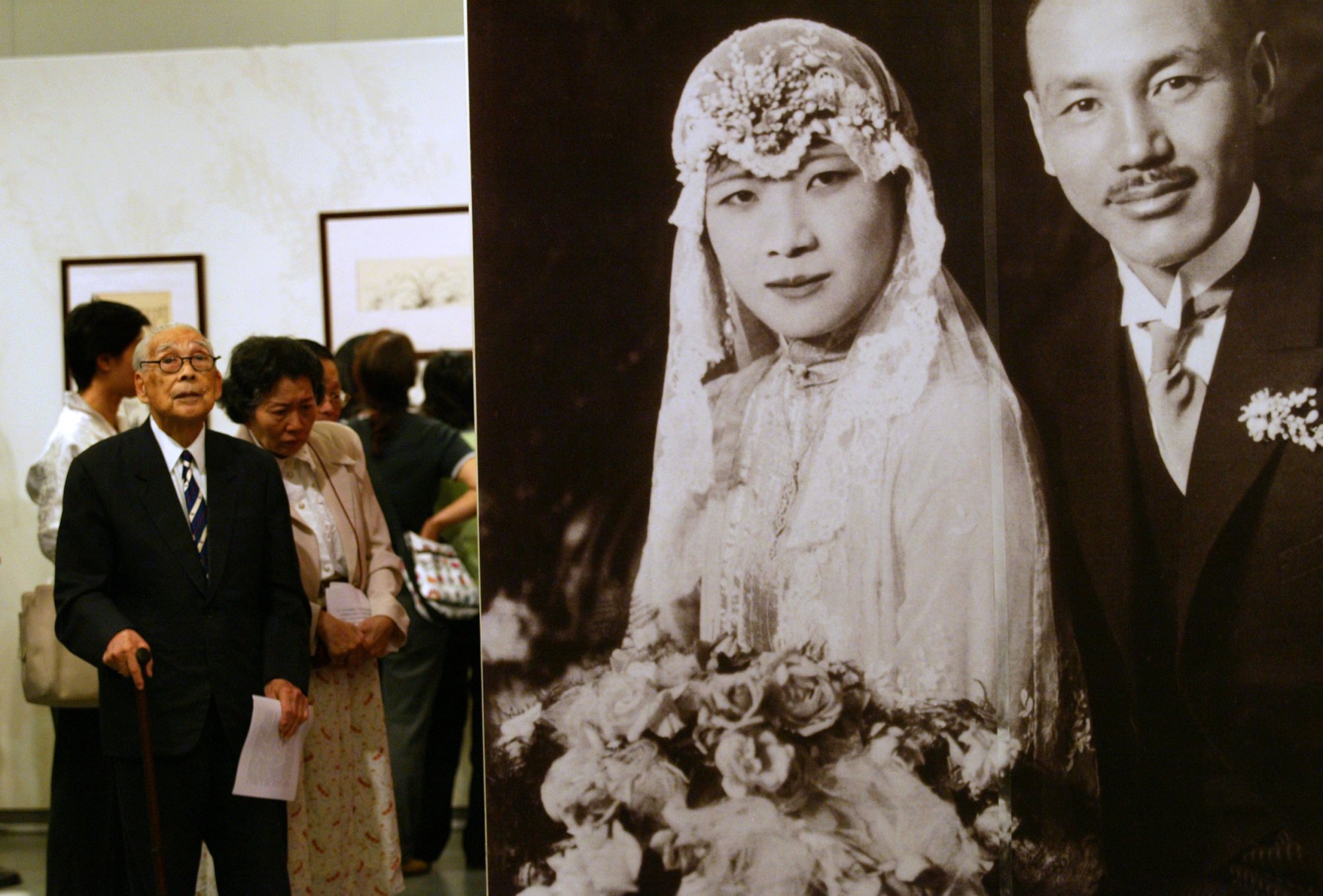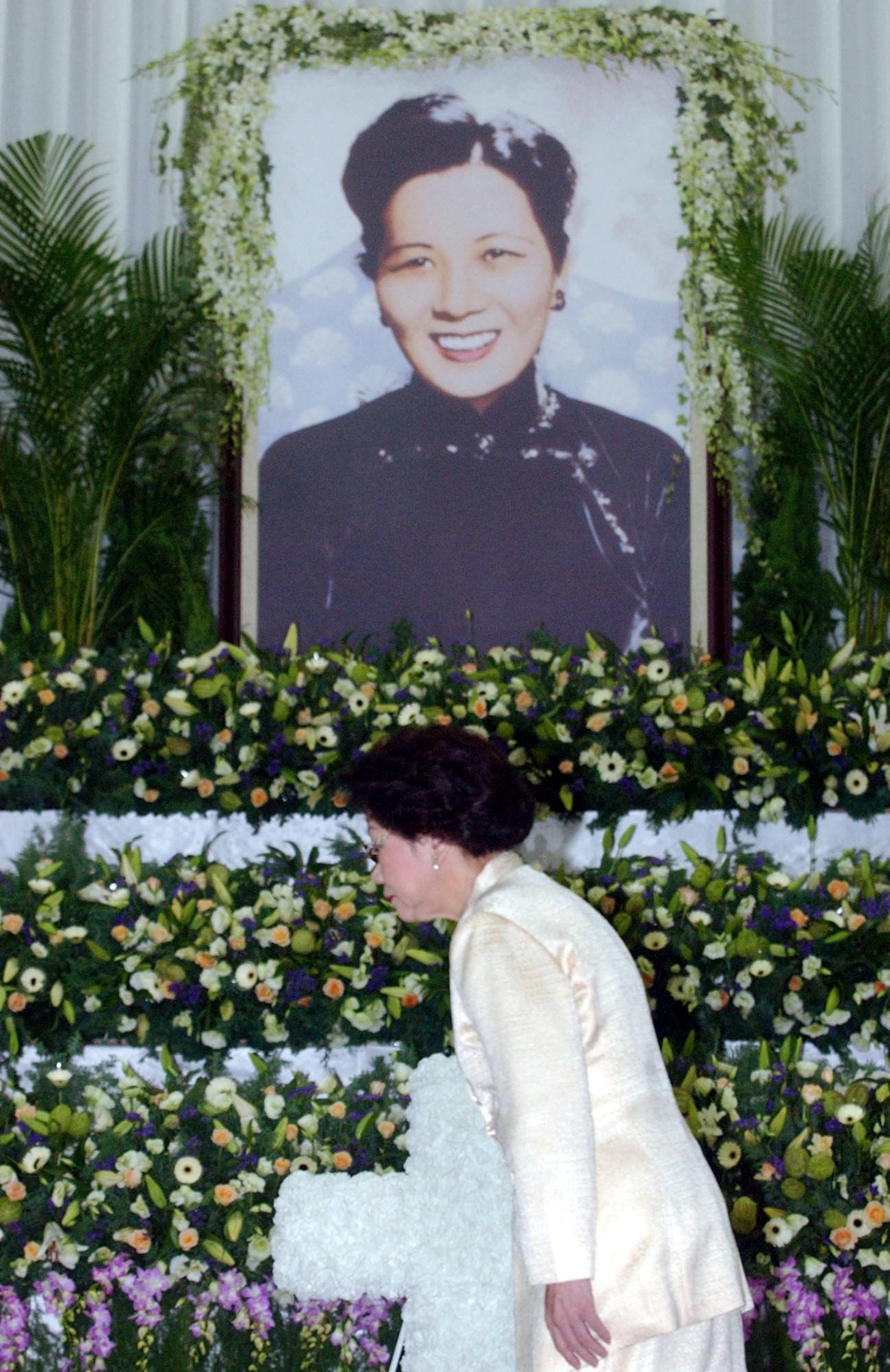
On this day | Soong Mei-ling: ‘the eternal first lady of China’ — from the SCMP archive
- We revisit our coverage from 20 years ago on the death of Soong Mei-ling, wife of Chiang Kai-shek, on October 23, 2003
- Soong was hailed as ‘the greatest woman in modern Chinese history’
By Joe Tang and Agencies
Sixty years ago an elegant oriental woman electrified a packed audience at the US Congress with a passionate speech that deeply moved the hearts of Americans.
The charm, eloquence and resolution of the woman who helped support a shaky young republic in one of the most turbulent eras in Chinese history was remembered yesterday with news of the death of Madame Chiang Kai-shek, dubbed the “eternal first lady of China”.
The former first lady, known by her maiden name Soong Mei-ling, died in her sleep at her New York home at the age of 106, after a life spanning three centuries and the birth of modern China.

Once the most powerful woman in China, Soong may be best remembered by her 1943 speech to the US Congress, during which she sought aid to back her husband, Generalissimo Chiang Kai-shek, in the war against Japan.
“I came to your country as a little girl. I know your people. I speak your language, not only the language of your hearts but also your tongue. So coming here today, I feel that I am also coming home,” said Soong, then 46 years old.
“I feel that if the Chinese people could speak to you in your own tongue, or if you could understand our tongue, they would tell you that basically and fundamentally, we are fighting for the same cause.”
The passionate speech by the mesmerising Chinese beauty captured the hearts of the Americans and won billions of dollars in aid for the Kuomintang (KMT) forces.
Soong’s diplomatic success was even more notable because the Americans did not like Chiang, suspecting he might secretly reach a peace agreement with Japan or reserve some of his forces in order to fight the communists.
How Mrs Sun Yat-sen’s death was politicised by China, Taiwan
In November 1943, Soong again won international recognition when she accompanied her husband to the Cairo Conference hosted by China, the United States and Britain.
Displaying her diplomatic might, Soong stole the limelight from her husband at meetings with US president Franklin D. Roosevelt and British prime minister Winston Churchill, intervening frequently with: “If you allow me, I shall put before you the Generalissimo’s true thoughts.”
Born in Shanghai in 1897 to wealthy Protestant industrialist Charlie Soong, Mei-ling married Chiang in 1927 and her husband built up the KMT partially with the help of her father’s fortune.
US-educated Soong succeeded in blending west and east to win support at home and abroad. “She was probably the greatest woman in modern Chinese history,” said Andrew Hsia, director-general of the Taipei Economic and Cultural Office in New York.
Taiwanese columnist Lin Po-wen said: “She had classical Chinese quality and western elegance. She was sometimes sharp, and sometimes witty, making western people crazy about her, yet hating her for being too smart.”

Taiwan’s media announced her death with banner headlines and full page reports, while President Chen Shui-bian ordered that a special committee be set up to prepare for her funeral.
The KMT ordered the lowering of the KMT flag for three days.
China’s official Xinhua news agency said Jia Qinglin, Politburo member and chairman of Chinese People’s Political Consultative Conference, sent a telegram to Soong’s family expressing condolences. It also published a brief three-paragraph report of her death without commentary.
Additional reporting by Reuters and Agence France-Presse

